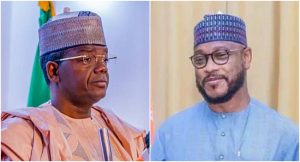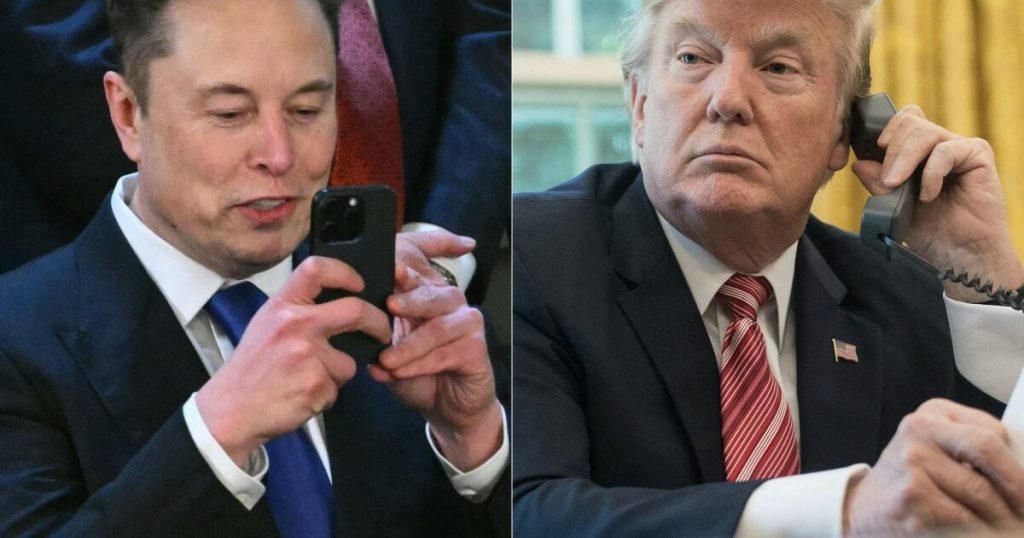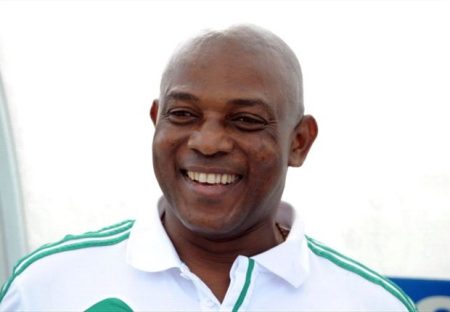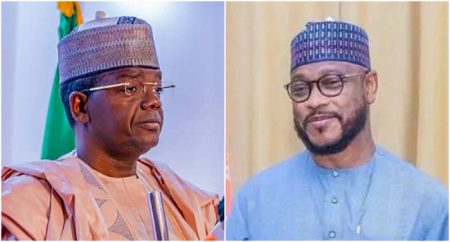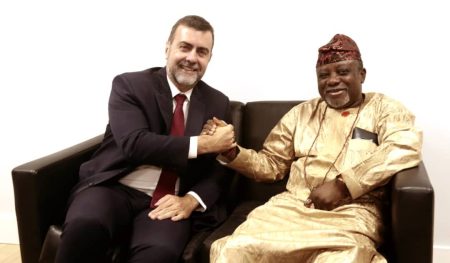The relationship between former President Donald Trump and billionaire entrepreneur Elon Musk has apparently fractured irreparably, stemming from Musk’s vehement opposition to Trump’s proposed tax and spending bill. Trump, in an interview with NBC News, stated that he considered the relationship over and had no intention of rekindling it. He further warned of “serious consequences” should Musk choose to financially support Democratic candidates opposing Republicans who vote in favor of the bill. However, Trump declined to elaborate on the nature of these consequences or whether they involved potential investigations into Musk’s businesses. Despite the escalating tension, Trump denied any consideration of terminating government contracts with Musk’s companies, SpaceX and Starlink. This abrupt rift follows a public exchange of insults, initiated by Musk’s condemnation of Trump’s bill as a “disgusting abomination.”
The controversial tax and spending bill, currently under Senate review after narrowly passing the House, forms the crux of the dispute. Nonpartisan estimates project the bill would add $2.4 trillion to the national debt over a decade, sparking concern among fiscal conservatives within the Republican party. Musk’s public disapproval of the bill, coupled with his call for a new centrist political party, has complicated its passage, particularly given the Republicans’ slim majorities in both chambers of Congress. Despite the internal friction and Musk’s criticism, Trump expressed confidence that the bill would be passed by the July 4th holiday, claiming increased enthusiasm for the legislation among Republican lawmakers. He underscored the steadfast support his initiatives have received from Republicans since the start of his second term, noting that while some lawmakers have expressed concerns privately, they have yet to oppose any of his policies or nominations through formal votes.
The public feud between Trump and Musk, which erupted on Thursday, has seen both sides engaging in a war of words. However, Musk has subsequently deleted some of his critical social media posts targeting Trump, including one expressing support for the former president’s impeachment. This move suggests a possible attempt to de-escalate the conflict. Sources close to Musk indicate that his anger has subsided, and he may be open to mending the relationship. One deleted post was a response to a user suggesting Trump’s impeachment and replacement by Vice President JD Vance, to which Musk had replied affirmatively.
J.D. Vance, appearing on Theo Von’s podcast, “This Past Weekend,” characterized Musk’s criticism of Trump as a “huge mistake.” Vance reaffirmed his loyalty to Trump and expressed hope that Musk would eventually reconcile with the president, acknowledging the difficulty given the severity of the public dispute. He lauded Musk as an “incredible entrepreneur” and suggested the possibility of a future reconciliation. This weekend, Trump is scheduled to attend a UFC fight in New Jersey, an event he has previously attended with Musk on two occasions since his re-election. However, Musk’s presence is not expected at this event.
The broken alliance between Trump and Musk carries significant political and financial implications. Musk, the world’s wealthiest individual, was a major financial backer of Trump’s 2024 presidential campaign, contributing nearly $300 million and taking credit for Republican successes in retaining the House and regaining the Senate. Trump had appointed Musk to lead an initiative aimed at reducing the federal workforce and slashing government spending, praising him publicly for his work as head of the Department of Government Efficiency. Despite ambitious plans to cut $2 trillion from the federal budget, Musk achieved only about half of one percent in spending reductions.
The fallout from this fractured relationship remains uncertain. While Musk has made gestures suggesting a potential desire for reconciliation, Trump’s public statements indicate a firm stance against mending ties. The political ramifications, particularly regarding the fate of the contentious tax and spending bill, are yet to unfold. The unexpected rupture between these two powerful figures adds another layer of complexity to the already intricate political landscape and could have significant long-term consequences. The future trajectory of their relationship, and its impact on the political arena, remains to be seen.




